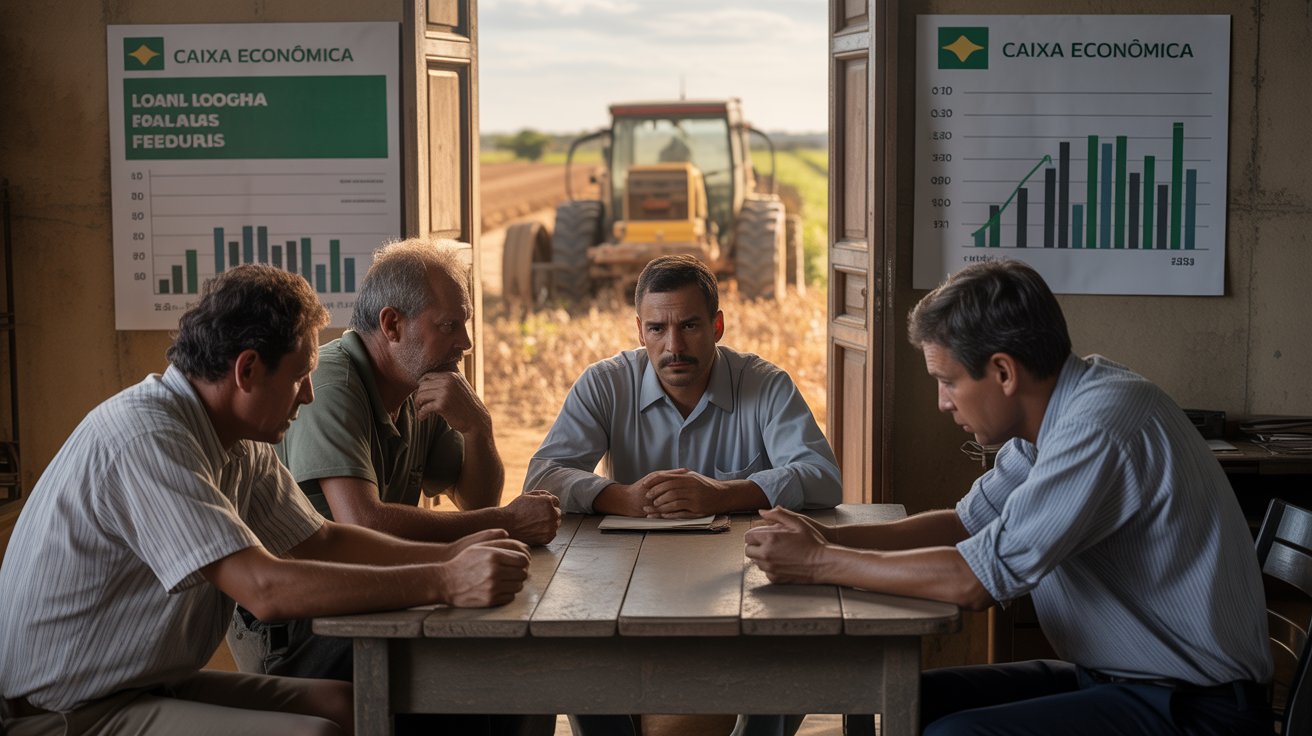
In 2025, defaults in Brazil’s agribusiness sector are increasing at an alarming rate, creating significant risks for both financial institutions and investors. Major banks such as Caixa Econômica Federal and Banco do Brasil are reporting a surge in non-performing loans (NPLs) from agricultural clients, signaling structural stress in the sector.
Understanding the Rise in Agribusiness Defaults
Several factors contribute to this upward trend in defaults:
- Climatic Challenges – Droughts, floods, and unpredictable weather patterns continue to impact crop yields. This directly affects farmers’ revenue and their ability to service debts.
- Rising Input Costs – Fertilizers, machinery, and other essential inputs have increased sharply in price, squeezing profit margins.
- Global Commodity Price Volatility – Price fluctuations in soy, corn, and coffee influence cash flow stability, making it harder for agribusinesses to maintain loan obligations.
- Credit Expansion Risks – Banks have historically extended generous credit lines to agricultural producers, sometimes without sufficient risk assessment.
Implications for Financial Institutions
The rise in defaults creates several risks for lenders:
- Balance Sheet Pressure – Higher non-performing loans reduce bank profitability and increase the need for loan loss provisions.
- Liquidity Constraints – Prolonged defaults can strain banks’ ability to lend, affecting credit availability in the broader economy.
- Policy Pressure – Public banks like Banco do Brasil may face governmental pressure to restructure debts or provide emergency financing, affecting operational efficiency.
Strategies to Mitigate Risks
Investors, banks, and agribusinesses can adopt proactive measures:
- Diversification of Crop Portfolios – Farmers should spread production across multiple crops to reduce dependency on one commodity.
- Insurance Solutions – Crop insurance and weather derivatives can protect against climatic risks.
- Enhanced Credit Assessment – Banks must integrate more sophisticated risk models, including climate and commodity price analytics, before granting loans.
- Debt Restructuring Programs – Timely renegotiation of payment terms can prevent defaults from escalating into insolvencies.
Opportunities for Investors
Despite rising risks, agribusiness still presents opportunities:
- Sustainable Agritech – Companies developing water-efficient irrigation, precision farming, and yield optimization technologies are attracting investor attention.
- Export-Oriented Agriculture – Producers focused on high-demand international markets can buffer against domestic price volatility.
Conclusion
The rise in agribusiness defaults is a wake-up call for both financial institutions and investors. Banks like Caixa and Banco do Brasil need to adopt smarter lending practices, while farmers must implement strategies to hedge risks. For investors, identifying resilient players in the sector is key to navigating this challenging landscape.
agribusiness defaults, Brazil agribusiness, Caixa loans, Banco do Brasil, agricultural sector risks, crop insurance Brazil, agribusiness investing 2025, non-performing loans, Brazilian banks, commodity price volatility